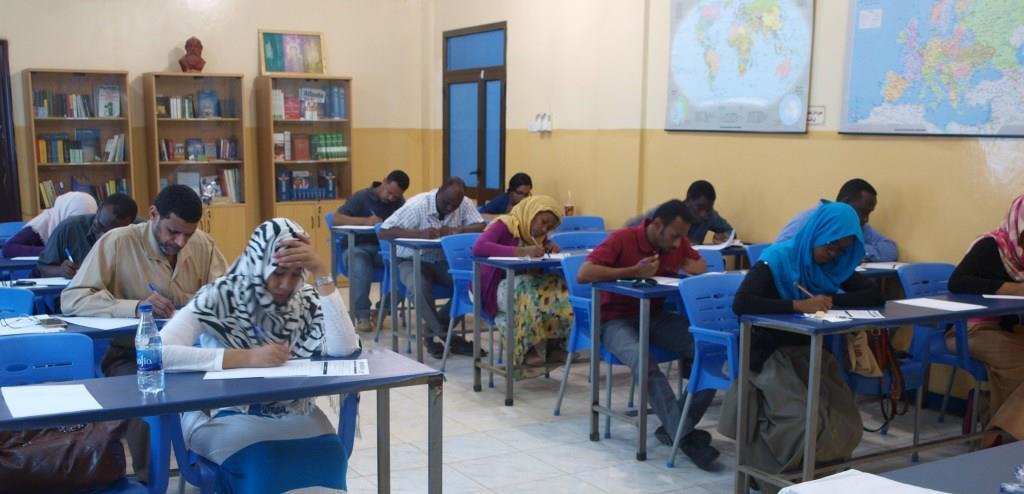Daniele Comboni
Missionari Comboniani
Area istituzionale
Altri link
Newsletter
Wednesday, March 16, 2016
In 1929 the MCCJ founded Comboni College Khartoum (CCK). Fr. Agostino Baroni and his successors in the fifties planned the extension of this educational proposal to university studies in line with Comboni´s Plan. Political events prevented this step in 1964. In 2001 a group of Muslim Sudanese parents of students at CCK got the approval from the Ministry of Higher Education and Scientific Research for the Comboni College of Science and Technology (CCST). Today just one program is left for CCST to become a full university. Besides the university programs, CCST offers courses in English, Italian, Spanish and Arabic languages, Computer knowledge and Palliative Care for Health Professionals.
In 1982 the Sudanese president, Mohammed Jaafar Nimeiry asked the Holy See for the opening of a Polytechnic University of the Church. The Sacred Congregation for Catholic Education set up a Committee that described the request in these terms: “At no time in the past, […] has an occasion presented itself with the political will to proceed. We also believe that such an institution would help strengthen the position of the Church with the Catholic minority in Sudan […] We believe that this could well be as important a step as the opening in China. This is a rare opening in the Moslem world”. Saint John Paul II insisted on several occasions on the importance of this project. In 2001 a group of Muslim Sudanese parents of students at CCK got the approval from the Ministry of Higher Education and Scientific Research for the Comboni College of Science and Technology (CCST).
From 2004 new programs have been approved by the Ministry: Information Technology (with two branches, Management and Accounting); BA in English Language and Literature and a BA in Educational and Religious Studies. The last program, which trains teachers of Christian religion, is the result of an agreement with the Archdiocese of Khartoum and the Diocese of El Obeid and meant the transformation of CCST into a partnership between the MCCJ and the local Church.
Today just one program is left for CCST to become a full university. Besides the university programs, CCST offers courses in English, Italian, Spanish and Arabic languages, Computer knowledge and Palliative Care for Health Professionals. It represents for the church a qualified platform of encounter and dialogue in a Islamic country where Catholics are just 0.5% of the population. CCST is also the only university institution in the country where Christian youngsters study Christian religion instead of the Islamic one.







